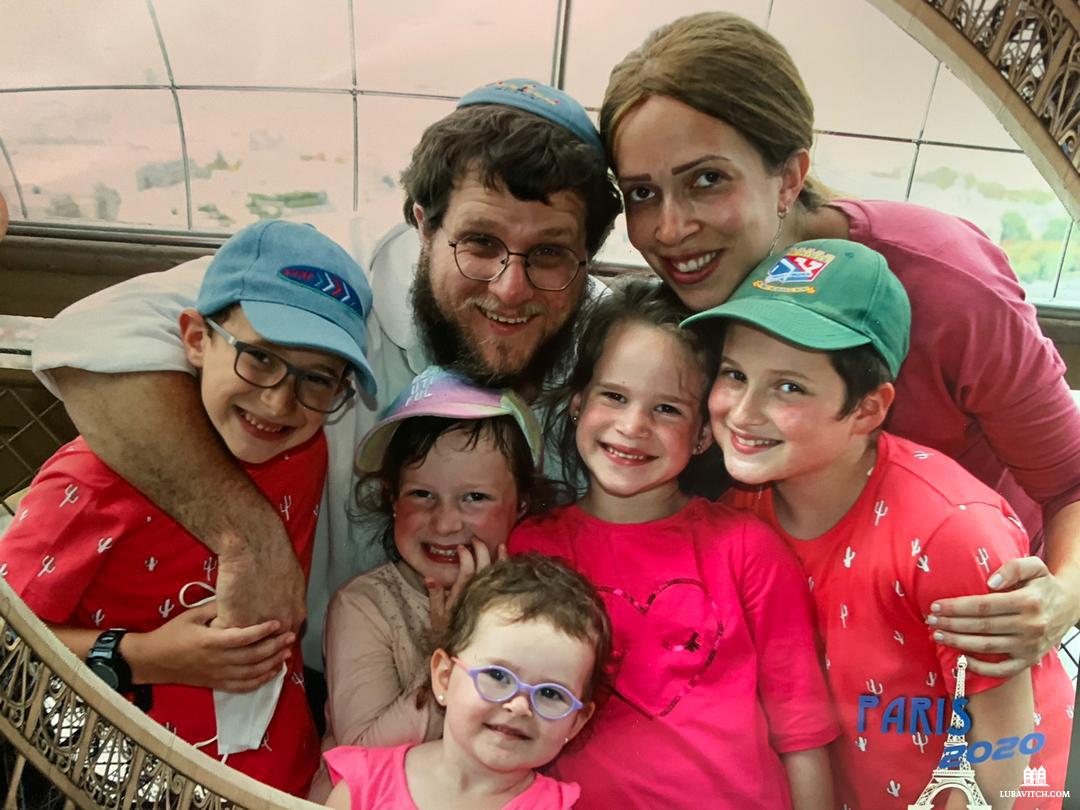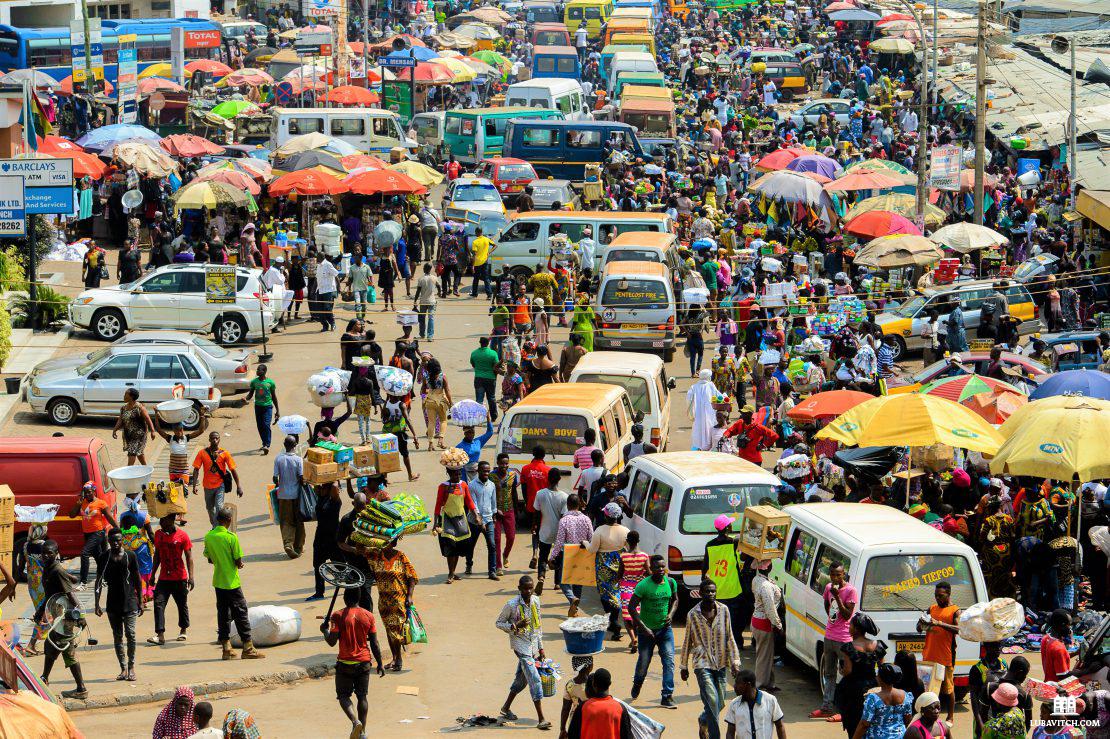Bitten by the travel bug? Flying is not what it used to be–not since the pandemic. Thankfully, there’s still virtual travel. Join us each #ThursdayTravel as we take a virtual tour of one of the 5000 communities around the globe served by Chabad. Fasten your seatbelts.
Have an idea of which Chabad center we should feature next? Let us know in the comments!
You’ve procured a visa, got the Yellow Fever shot and now you’re all set to visit Ghana. You’ll most likely land in Kotoka International Airport—although the country does boast three smaller international airports—and from there you can travel by train to Tema, Sekondi-Takoradi and Ghana’s second largest city, Kumasi.
One of West Africa’s regional powers, Ghana has much diverse natural terrain to explore. Savannahs, waterfalls, low hills, rivers, beaches, rainforests and the world’s largest artificial lake, Lake Volta, which lies at the edge of Digya, one of the Republic’s seven national parks.
Situated on the Atlantic coast of the Gulf of Guinea, Accra is a city of close to 2 million. It is also the country’s capital and home to Chabad of Ghana. Explore the Makola Market bustling with vendors and shoppers, bright colors and vibrant energy, visit Black Star Square, the site of Ghana’s independence day celebrations, or take a day trip to the Boti Falls (just make sure there’s been enough rain for them to be flowing, before you make the two-hour trek). Then contact Chabad and you’ll be directed to the property that serves as a Hebrew School, Synagogue, community center and the home of Ghana’s Chabad emissaries.
Ghana Facts:
Ghana’s Chabad reps: Rabbi Noach and Alti Majesky and their children, Yanky, Hilly, Chaiky, Chevy and Lakie.
- Population: Ghana: 30 million, Accra:1.5 million
- Jewish population: 4-500, mainly young Jewish expats and a few locals who came from Russia, or Germany decades ago.
- Ghana is located only a few degrees north of the Equator, so Shabbat and holidays begin between 5.30 and 6 o’clock P.M. and end between 6.30 and 7 o’clock P.M. year round.
- Ghana was once a British colony that was known as the Gold Coast. The name comes from its wealth of natural resources. It is Africa’s second-largest producer of both cocoa and gold, and is the world’s ninth largest producer of diamonds.
- Rabbi Majesky says Ghanaians are particularly supportive of Jews and pro-Israel. “From government officials to market vendors, people are happy to see us, and I’m often asked to bless people,” he says.
- Ghana means “Warrior King” in the Soninke language. The country’s official language is English, but there are eleven languages that have the status of government-sponsored languages, of these, Akan is the most widely spoken. Since Ghana is surrounded by French-speaking countries, French is taught in schools and universities, as well as a language used for commercial and international economic exchanges.
- Ghanaians use many different cloth fabrics for their traditional attire. The most well known is the Kente cloth, a ceremonial cloth hand-woven on a horizontal treadle loom. In a cultural context, kente is more important than just a cloth and it is a visual representation of history and also a form of written language through weaving. It’s different colors and symbols each have their own meaning. The Majesky children speak English, Hebrew, French and Yiddish.
- There is no Jewish infrastructure in the country. Kosher food is imported, and Rabbi Majesky trained as a shochet so he could shecht and kosher chickens for the family.
- The Majesky children attend the virtual Shluchim Online School along with hundreds of children of shluchim around the world.
- As of now there is no mikvah in Ghana, so mikvah attendance involves an international flight to South Africa, Morocco, Turkey, or Nigeria. Every time the mikvah is needed, the Majeskys have to figure out which is the most convenient option at that time.
- Ghana is a developing country so the family has traveled to France where Alti’s parents live, for the birth of each of their children.
- When the pandemic spread in March many expats left the country, bringing the community down to about one hundred in total. Those who were left sought the connection and support of the community during such trying times and Rabbi Majesky says they got to know people with whom they hadn’t previously had much contact, or who had chosen not to involve themselves with Chabad until now.
Have an idea of which Chabad center we should feature next? Let us know in the comments!


Julian Michaels
Time to build a Mikveh in Accra
Chaim.
Wow. Kol hakabod!
Cindy Rozen
Would love to learn about chabad in Kobe JAPAN AND THE HISTORY OF THE Mir Yeshiva
Ashira Weiss
Thanks for the tip.
Civia Mclean
Chabad is amazing.
Mickael
What about to do the tevila in the sea ?
Dayan Ben Melekh
Shalom Israel, Please Where can i Locate a Jewish Synagogue close to me in Ghana. My Name is Dayan Ben Melekh and i’m in Tema-Ghana, i’m a Nigerian.
Ruth
Is there kosher food delivery in Ghana for travelers?
Gagbe bubune williams
Hi pls I want to know more about the religion
I am Ghanaian will be very happy if u reach out to me
Will be glad to be part of this family
Joseph
Do they have contact with the people in Sefwi Wiawso who identify themselves as Jews?